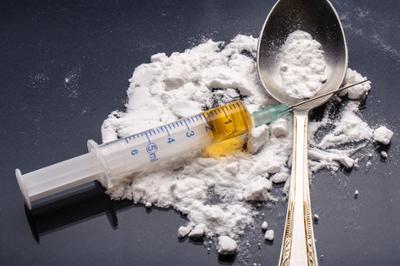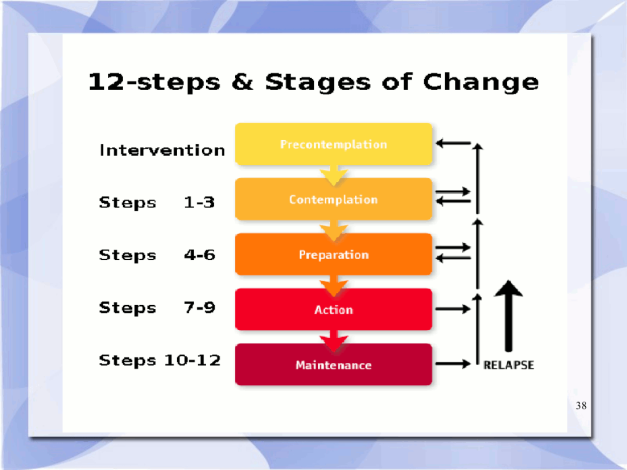The Link Between Prescription Drug Abuse and Heroin
|
Get Help Now! 800.815.3910 Available 24/7 The road to recovery starts here! Trusted, confidential help available 24/7. Speak with an addiction treatment specialist anytime. Please call us now at 800-815-3910! |
The Link Between Prescription Drug Abuse and Heroin
by Victoria Candland

The link between prescription drug abuse and heroin use is real and dangerous. Heroin and prescription drug related deaths have littered the news recently with the highly publicized drug overdoses of actors Cory Monteith and Philip Seymour Hoffman. Hoffman’s death was spurred by a relapse after staying sober for 23 years that began with illegally using prescription drugs and led to heroin. As in Hoffman’s case, prescription pills are increasingly becoming a gateway drug that directly link to heroin usage.
The appeal of taking a prescription drug without a prescription is threefold: they produce a strong high, they are available in almost any medicine cabinet, and they offer a false security of being harmless as they originally came from a doctor. They are used more and more by youth who raid their parents’ medicine stash.
Of these young prescription drug abusers, more and more are using heroin. According to the National Council on Alcoholism and Drug Dependence, a growing number of adolescents who started abusing prescription drugs are making the switch to heroin. Prescription drugs are expensive, while heroin is cheap and accessible. Of these teenagers, most start off snorting heroin and then move to injecting it within weeks, according to an NBC News Report.
A recent government report found that Americans ages 12 to 49 who abuse prescription drugs are 19 times more likely to use heroin than their peers. One aspect of this report that is especially disturbing relates to the fact that 12 is way too young of an age to start any drug, let alone heroin. Cory Monteith reportedly began his battle with drugs at age 12, a struggle that eventually led to his overdose. His autopsy indicated that he had heroin, codeine, and morphine in his system at the time of his passing.
So how do we protect ourselves and our loved ones from prescription drugs and heroine? How do we make sure our children, our siblings, our friends don’t fall into this terrible, life-threatening trap of addiction?
Here are a few suggestions on how to keep you and your loved ones safe.
Keeping Family Members Safe from Prescription Drugs:
As was mentioned above, drug use and addictions often start very early in a person’s life. Children begin to hear about drugs in elementary school and national studies have shown that the average age when a child tries alcohol is 11 and for marijuana, it’s 12. Children need to hear their parents’ counsel on what to do when offered drugs or what to do in a situation when peer pressure might persuade them to try prescription pills or another drug. Practice hypothetical scenarios and have your child rehearse his answers like, “I only take those if the doctor prescribes them to me,” or “No thanks, let’s go play video games instead.” Express to him that you will not be angry if he makes a mistake and that it’s okay to come tell you. Open communication with your child can nip many different bad behaviors in the bud.
Additionally, keep temptation away in your house. If possible, lock away your prescription drugs in a secure drawer. You could even bring your child or teen to the hospital clinic with you and have your doctor explain the negative effects associated with abusing prescription drugs.
If you have a family member or close friend that is prescribed a highly addictive medication, perhaps after a surgery or other intensive medical procedure, ask her if she’d like help in regulating her medication intake after leaving the hospital. This way she is responsible to you to make sure she has not or is not becoming addicted. Of course, make sure to act in a compassionate and loving way during her recovery process as well.
Educating Teens on the Effects of Heroin:
Oftentimes teens have an “invincibility complex” or the unreasonable mentality that nothing bad will happen to them no matter what they do. This same attitude is used when teens abuse drugs: that they will not suffer the consequences of their drug use such as addiction, car wrecks, loss of potential, and even death. The vital action to take is to educate teens on the ramifications of using any drug even one time, especially heroin.
St. Louis, Missouri was a hotspot for heroin traffickers whose target customers were affluent, suburban teenagers. Each year, the deaths due to overdose grew and grew until in 2010, there were over 200 overdose deaths among young people in the city. A group of parents and community members decided that they’d had enough and began a campaign against heroin use. They paraded around the streets with signs like “Heroin, welcome to your hell” and advertised their campaign slogan “Not Even Once” on radio programs, TV interviews, and printed ads. They featured families who had lost a child to an overdose and held regional town hall meetings where teenagers were especially invited. They promoted their “Not Even Once” campaign throughout the state until it dramatically decreased the number of overdose associated deaths among teens.
Like these parents of St. Louis, Missouri, educate the youth in your life that using only once will make them addicted. Find seminars in your area that talk about the harmful effects of opioid abuse and attend with your teen. Prevention steps can and need to be taken.
Final Thoughts
Nothing can say it better than this quote from a Renaissance Ranch article which states, “Addressing prescription medication addiction early and educating people about the dangers of opioid abuse in any form is the only way to decrease the skyrocketing number of deaths by heroin overdose.”
Let’s be vigilant in helping our communities, our loved ones, and ourselves avoid the pangs and dangers of prescription drug abuse and heroin use.
Victoria Candland is a traveler, runner, and professional writer. She enjoys finding creative fixes to life’s everyday problems and sharing them whenever she can. She especially loves creating fun ways for families and friends to spend time together.
and Finally Remember:
“Ask and it will be given to you; seek and you will find; knock and the door will be opened to you. For everyone who asks receives; he who seeks finds; and to him who knocks, the door will be opened.”
– Matthew 7:7-8
Recent Articles
-
Drug Awareness
Aug 26, 17 08:46 AM
Drug Awareness describes ways to get treatment and begin recovery for drug and alcohol addiction.
-
Why do I feel high, if I haven’t smoked recently?
Aug 25, 17 08:46 AM
I’ve smoked weed everyday and I’m usually high throughout the day, but I’ve been trying to quit. I haven’t smoked in three days yet I felt high for a
-
Heroin Addiction Symptoms
Aug 24, 17 08:53 AM
Heroin Addiction Symptoms describes the signs of addiction you can look for to determine if drug abuse or addiction are present.

– We’re also launching four new
classes which will help you learn how to use motivation, affirmation
and encouragement to end addiction in yourself or a loved one. Each
class will focus on an evidence-based concept, explaining how to illicit positive
change
in yourself or in someone you love.
Ending addiction is all about
learning to change, and these classes will teach you how to do that right now. We will show you practical techniques that
research has shown to be effective for achieving change and successfully ending addiction.
We’ll begin offering these classes this September through Learn-It-Live (Learn-It-Live is easy to use teaching tool and you don’t need to download anything to use it). Click Register Now! below to join one of our classes.
Four new addiction classes:
|
– Addiction 101, a FREE 60 minute course introducing key recovery concepts, starting September 12. |
Addiction 101 Register Now! |
|
|
– Why Motivation?, understanding motivation with encouragement to |
Why Motivation? Register Now! |
|
|
– Change Talk, a building-block for addiction recovery. This course |
Change Talk Register Now! |
|
|
– Effective Conversations, |
Effective Conversations Register Now! |






